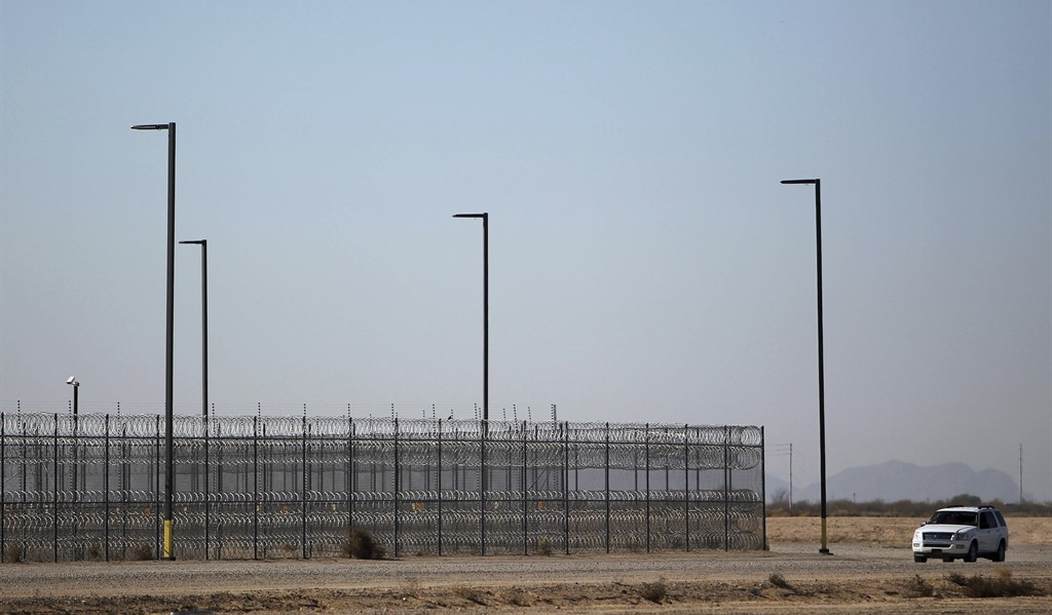One of the most overlooked aspects of the history of slavery and Jim Crow is that the 13th Amendment did not abolish all legal slavery. While the amendment did away with chattel slavery among private individuals, it still allowed for the state to essentially enslave inmates serving out their sentences in prison.
The loophole in the 13th Amendment led to the advent of convict leasing, a system used to keep many black Americans in bondage after the abolition of chattel slavery, especially in southern states. The state can essentially force inmates to work in various capacities while paying them a pittance – or nothing at all. In most of these cases, prisoners are not given a choice as to whether they want to work.
Now, current and former prisoners are suing the state of Alabama, alleging that it exploited their labor and forced them to work for various fast-food restaurants.
A federal lawsuit filed Tuesday said prisoners in Alabama have been denied parole and forced to work jobs at fast food restaurants as part of a “labor-trafficking scheme” that generates $450 million a year for the state, according to a press release.
Ten former and current prisoners and labor unions that represent service workers filed the lawsuit Tuesday against Alabama Gov. Kay Ivey, Attorney General Steve Marshall, a beer distributor and several fast food companies. The lawsuit alleges the prison system makes money by deducting fees from the wages of prisoners. Private companies such as KFC, Wendy’s, Burger King and McDonald’s get a steady supply of workers from the prison system, the lawsuit says.
The lawsuit claims the arrangement resembles convict leasing, a system that followed slavery in the South. Prisoners, many of whom were Black and had been arrested for violations of Jim Crow laws, could be forced to work dangerous or grueling jobs for private employers.
The arrangement is beneficial for everyone except the prisoners. The lawsuit alleges that the Alabama Department of Corrections (ADOC) generated $450 million each year by deducting fees from the prisoners’ wages. The private companies benefitted from receiving a consistent workforce at significantly reduced costs.
The plaintiffs claim that Alabama’s convict leasing program operates using coercion, forcing inmates to work under duress. One prisoner, Lakiera Walker, was subjected to work that included harsh and unsafe conditions.
Ms. Walker subsequently worked at Southeastern Meats from approximately October 2022 to February 2023, where she worked in harsh conditions inside freezers without adequate work clothes to prevent workplace injury and illness. She often worked 12-hour shifts from 2 pm to 2 am. She then worked for Burger King in Pelham, Alabama, and then in Birmingham, Alabama. On one occasion, Ms. Walker was so ill that she had to be carried to the healthcare unit and could not work; she was approached by an ADOC job placement officer who told her she had to "get up and go make us our 40 percent."
Further compounding the matter is the racial disparity in parole denials. The lawsuit alleges that between January 1, 2021, and July 31, 2021, the Board of Pardons and Paroles denied parole for 90 percent of black applicants, compared to 77 percent of parole-eligible white applicants.
The lawsuit, filed in the U.S. District Court for the Middle District of Alabama, seeks compensation for incarcerated people who have been exploited by the state’s forced prison labor system, which the lawsuit says is discriminatory. Despite a 2015 state law requiring that the Alabama Bureau of Pardons and Paroles make evidence-based parole decisions, the lawsuit alleges that the state denies Black Alabamians parole at a 2 to 1 rate compared to white candidates in order to maintain its pool of workers.
“[Incarcerated people] are trapped in this labor trafficking scheme,” says the lawsuit, which was obtained by The New York Times. “Although they are trusted to perform work for the state, local governments, and a vast array of private employers, some of the same people who profit from their coerced labor have systematically shut down grants of parole.”
Aimireo English, an Alabama prisoner, told the New York Times that the state denies them parole “to keep us doing the jobs” and said their mentality can be summed up this way: “Why would the slave master let the slave go when he can continue working him for free?”
The lawsuit noted that since 2018, “approximately 575 private employers and more than 100 public employers have ‘leased’ incarcerated labor from Alabama prisons.”
Inmates reported experiencing mental and physical coercion to work, according to the lawsuit, which noted that ADOC “enforces express rules that severely punish incarcerated people both for refusing to work” and even goes so far as to use threats to prompt compliance.
ADOC forces the [inmates] to work whether they want to or not through the use or threatened use of extended incarceration, increased physical restraint and confinement, physical injury, law or legal process and/or physical, psychological, and economic coercion.
The lawsuit also alleges that the department “maintains a policy of disciplining and abusing incarcerated persons who withhold their labor and who advocate for others to withhold their labor.”
ADOC has implemented a de facto policy that refusing to work on one or more occasions is punished including with transfer to higher security and more violent facilities and solitary confinement. ADOC also has a longstanding history and practice of subjecting people in solitary confinement to physical and mental abuse
The implications of this lawsuit are quite profound. Indeed, the document highlights even more details about ADOC’s de facto enslavement of inmates and how its staff has treated those affected by it all while making a cool profit each year. If the allegations are true, they challenge the notion of rehabilitation and reintegration into society and expose the reality that Alabama’s prisons are enterprises that exploit their labor for profit.
The outcome of this case could have far-reaching ramifications not just for Alabama but for the rest of the country – especially states that still implement convict leasing programs. It has the potential to have a tremendous role in shaping policy when it comes to prison labor and criminal justice.













